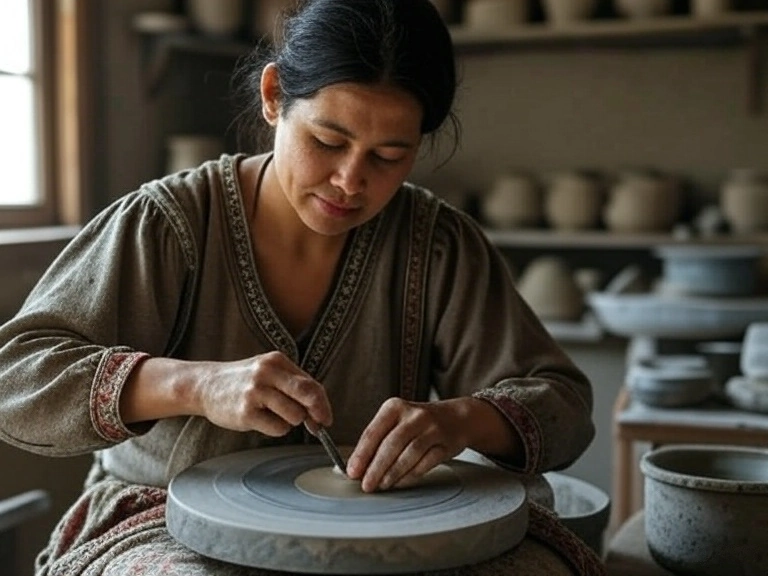Everyone possesses unique abilities that remain undiscovered throughout their lives. These hidden talents—natural aptitudes that come easily to you but might be challenging for others—often lie dormant, waiting to be uncovered. Discovering your hidden talents isn’t just about finding a new hobby; it can transform your career trajectory, boost your confidence, and even provide a profound sense of purpose. This comprehensive guide will walk you through proven strategies to uncover your latent abilities and develop them into genuine strengths.
Why Hidden Talents Often Remain Undiscovered
Many people go through life without recognizing their innate gifts, despite using them regularly. This happens for several reasons. Sometimes our natural abilities come so effortlessly that we assume everyone can do what we do. Other times, we’ve been conditioned to focus exclusively on conventional skills valued by educational systems or workplace environments, neglecting our unique aptitudes.
Social conditioning plays a significant role too. Perhaps you showed interest in an unconventional talent as a child but were steered toward more “practical” pursuits. Or maybe you discovered a natural ability but dismissed it because it didn’t align with expectations set by family, peers, or society. The modern emphasis on specialization can also narrow our focus, preventing us from exploring diverse interests that might reveal hidden abilities.
Understanding these barriers is the first step toward breaking through them. Remember that what comes naturally to you might be exceptional to others—these effortless abilities often indicate hidden talents worth exploring.
Signs You May Have Untapped Potential
Identifying hidden talents requires self-awareness and observation. Pay attention to activities that put you in a state of “flow”—where you become so absorbed that you lose track of time. This psychological state often indicates a natural alignment between your abilities and the task at hand.
Notice what people consistently compliment you on or ask for your help with. Sometimes others recognize our strengths before we do. Whether it’s your ability to defuse tense situations, organize chaotic information, or explain complex concepts simply, these recurring patterns can point toward hidden talents.
Reflect on childhood interests that brought you joy before practical concerns took precedence. Many successful people have rekindled childhood passions later in life, discovering that these early interests were connected to their natural aptitudes. What activities did you gravitate toward as a child? What did you spend hours doing without being asked?
Also, consider what you’re naturally curious about. The topics that capture your attention, the YouTube rabbit holes you fall into, or the books you can’t put down often align with your latent abilities. Your brain is naturally drawn to areas where it has potential to excel.
The Comprehensive Talent Exploration Process
Discovering hidden talents requires a methodical approach that combines introspection, experimentation, and feedback. This process isn’t about finding immediate perfection but rather identifying areas of natural aptitude and growth potential.
Begin with thorough self-reflection. Create a personal inventory of activities that energize rather than drain you. Consider both work-related tasks and leisure pursuits. Which elements of your current job do you look forward to? What weekend activities leave you feeling fulfilled rather than exhausted? These energy patterns often indicate alignment with your natural abilities.
Next, conduct a skills assessment that goes beyond conventional categories. Instead of limiting yourself to standard resume skills, consider broader aptitudes like spatial reasoning, emotional intelligence, pattern recognition, storytelling, or systems thinking. Online assessments like StrengthsFinder, MAPP Career Assessment, or the VIA Character Strengths Survey can provide structured frameworks for this exploration.
Then, gather external perspectives. We often have blind spots about our own abilities. Ask trusted friends, colleagues, and family members what they see as your strengths. Pose specific questions like: “What do you think I do better than most people?” or “When have you seen me at my best?” Their observations might reveal talents you’ve taken for granted.
The Experimentation Phase: Trying New Things
Uncovering hidden talents requires stepping outside your comfort zone and experimenting with diverse activities. Commit to a “talent exploration period” where you systematically try new things without pressure to master them immediately.
Create a structured sampling schedule. Dedicate a specific timeframe—perhaps two weeks—to each new activity or skill area. This provides enough time to move past the initial awkwardness but doesn’t require a long-term commitment. During this period, immerse yourself fully in learning the basics and observe how naturally the skills come to you.
Diversify your experiments across multiple domains. If you’re typically drawn to analytical pursuits, challenge yourself with creative activities like drawing, storytelling, or music. If you’re naturally creative, try structured activities like coding, strategy games, or project management. Cross-pollinating between different domains often reveals surprising aptitudes.
Pay particular attention to activities that produce a dual response: initial excitement followed by rapid skill acquisition. When your enthusiasm for something new is matched by unusually quick progress, you’ve likely encountered an area of natural talent.
Flow State: A Strong Signal of Hidden Talent
One of the clearest signs that you’ve stumbled on a real talent is something called flow state. This is a mental state where you’re so focused on an activity that everything else fades away. Time passes without you noticing. You stop checking your phone. You forget to eat. You feel clear, capable, and fully absorbed. And when it’s over, you realize you enjoyed it—even if it took effort.
Psychologist Mihaly Csikszentmihalyi coined the term “flow,” but you don’t need to read academic papers to understand it. You’ve likely felt it before. Maybe while playing an instrument, building something with your hands, fixing a tricky problem, or helping someone in a way that just made sense. You were all in. And it felt good.
That feeling matters. It’s not random. Flow often happens when there’s a match between your natural ability and the challenge in front of you. You’re not bored, and you’re not overwhelmed. You’re just working at the right level for your brain and body. That balance creates energy—not the kind that drains you, but the kind that fills you up.
Flow as a Talent Detector
When trying new things, watch for flow. It might not happen every time, especially at the start. But when it does, pay attention. Flow can be one of the strongest indicators that you’re working with a hidden strength. Even if you’re not “good” at it yet, the experience itself tells you something. It tells you that your brain enjoys this kind of task. And that can matter more than current skill.
Flow often shows up early in activities that match our natural wiring. Some people get it while coding. Others while sketching. Others in conversation or negotiation. The key is to try enough different things that you start noticing where this deep focus appears.
This is not about chasing pleasure. Flow can happen during hard work. But it feels different from forcing yourself to do something you dislike. Flow activities feel like home, even when they’re challenging. That’s because you’re wired for them.
How to Track Your Flow
To use flow as a tool for talent discovery, keep a simple journal or note on your phone. Each time you try a new skill or hobby, rate two things:
1. Did I lose track of time?
2. Did this give me energy afterward?
If you answer “yes” to both, you might be on to something. If the same activity gives you flow again and again, take it seriously. That’s more than a hobby. That could be a real talent worth developing.
Why Flow Matters for Long-Term Growth
Many people quit too soon. They try something once, feel clumsy, and move on. But if you felt flow—even for a moment—it’s worth giving that activity more time. Natural talent doesn’t mean you’re perfect right away. It means you’re built in a way that gives you an edge with practice.
And here’s the truth: building a meaningful life or career often starts with recognizing what you already enjoy doing when no one is watching. Flow points you there.
In the search for hidden talents, don’t ignore what your body and mind are trying to tell you. Flow isn’t just a feeling. It’s data. Use it.
You can learn more about the flow state here: 30 Flow State Examples & Definition
Don’t Confuse Skill with Talent
One of the biggest mistakes people make when searching for their hidden talent is assuming that talent and skill are the same thing. They’re not. And confusing the two can lead you away from what you’re really good at.
Skill is something you build. You can work hard, study, practice, and eventually get good at something. It takes time and effort. But you can become skilled at almost anything, even if you don’t enjoy it.
Talent is different. Talent is what comes naturally. It feels easier, even when it’s hard. You pick it up faster than most. You don’t need to force it. It feels more automatic—like something in you already knows how to do it, even if you’re still learning the details.
Here’s where people get stuck: They look at what they’ve been trained to do, and assume that’s their only strength. They think, “Well, I’m good at spreadsheets, so I guess that’s my talent.” But maybe it’s not. Maybe you’re just well-practiced. That doesn’t mean it energizes you—or that it’s what you’re naturally built for.
Pay Attention to What Feels Easy (Even If It’s Not Obvious)
Sometimes the most valuable talents are things you don’t even think of as talents. Like simplifying complex ideas. Or helping people calm down. Or organizing messy information. These things may feel small to you because they’re effortless. But to others, they’re hard. That’s the whole point.
If something feels easy, energizing, or automatic, don’t dismiss it. That’s the kind of clue most people overlook. And it’s often where true talent hides.
Skill Can Mask or Bury Talent
Here’s another issue: You might be very skilled in an area that doesn’t reflect your real talent. Maybe your job required you to develop certain abilities just to survive. Over time, you got good at them. But they still feel forced. They still wear you out.
That’s not talent. That’s survival.
It’s okay to be skilled in something and still hate doing it. That’s not failure. It just means you’ve adapted. But now you’re ready to go deeper. You’re ready to find what feels natural.
What to Ask Yourself
If you’re not sure whether something is a skill or a talent, ask:
-
Do I learn this faster than most people?
-
Does this energize me or drain me?
-
Do others struggle with this more than I do?
-
Can I do this well even when I’m tired or distracted?
If you’re answering “yes” to most of these, you may be looking at a real talent—not just something you trained yourself to do.
The Five Key Talent Categories to Explore
Cognitive Talents
These talents involve how you process information, solve problems, and generate ideas. They include:
- Analytical reasoning: The ability to break down complex problems into manageable components.
- Systems thinking: Seeing connections between seemingly unrelated elements.
- Creative ideation: Generating novel solutions and concepts.
- Pattern recognition: Identifying recurring themes or structures in information.
- Strategic foresight: Anticipating consequences and planning accordingly.
To explore cognitive talents, try activities like puzzle-solving, strategic games, debate, creative writing, or learning a new programming language. Notice which mental processes feel energizing rather than depleting.
Creative Talents
Creative talents extend beyond traditional artistic pursuits to include any form of original expression or innovative thinking:
- Visual creativity: Communicating through images, design, or spatial arrangement.
- Verbal creativity: Crafting compelling narratives or persuasive messages.
- Conceptual creativity: Generating novel ideas or combining existing concepts in unique ways.
- Improvisational talent: Adapting fluidly to changing circumstances or inputs.
Explore creative talents through activities like photography, storytelling, cooking without recipes, improvisational theater, or design challenges.
Interpersonal Talents
These talents involve how you interact with and influence others:
- Empathic understanding: Intuiting others’ emotions and perspectives.
- Leadership capacity: Inspiring and mobilizing groups toward common goals.
- Conflict resolution: Navigating tensions and finding mutually beneficial solutions.
- Teaching ability: Breaking down complex ideas into understandable components.
- Social intuition: Reading subtle cues in group dynamics.
Test interpersonal talents through volunteer leadership roles, teaching opportunities, group facilitation, or conflict mediation situations.
Physical Talents
Physical talents encompass bodily intelligence and kinesthetic abilities:
- Fine motor precision: Executing detailed physical tasks with accuracy.
- Spatial awareness: Understanding and navigating three-dimensional space.
- Rhythmic coordination: Synchronizing movements with timing or music.
- Endurance capacity: Sustaining physical effort over extended periods.
- Proprioceptive sensitivity: Awareness of body positioning and movement.
Explore physical talents through dance, sports, martial arts, crafting, or musical instruments.
Technical Talents
Technical talents involve working with tools, systems, or specialized knowledge domains:
- Mechanical intuition: Understanding how physical components interact.
- Digital fluency: Quickly adapting to new software or technological systems.
- Procedural mastery: Optimizing step-by-step processes for efficiency.
- Troubleshooting ability: Diagnosing and resolving system failures.
Investigate technical talents through DIY projects, technology exploration, process optimization challenges, or systems analysis activities.
Discover more hidden talents here: 200 Hidden Talents List
What Other People See in You Matters
When it comes to finding your hidden talent, your own perspective is important—but it’s not enough. Sometimes the people around you can see your strengths better than you can. They don’t have your blind spots. They’re not weighed down by your self-doubt or past failures. They just see what’s there.
We tend to ignore what comes easy to us. We downplay it. We think, “Everyone can do this.” But they can’t. That’s why it’s useful to ask people you trust what they notice.
Ask a few direct questions:
-
What do you think I’m naturally good at?
-
What’s something you’ve seen me do better than most people?
-
When have you seen me at my best?
These aren’t feel-good compliments. They’re clues. They’re patterns you can’t always spot on your own. And if the same answers come up more than once, pay attention.
Don’t Rely Only on Compliments
It’s not just about praise. Look at behavior. When do people come to you for help? What problems do they always seem to ask you about?
If friends are constantly asking you to help them solve something—or to explain something—they’re showing you what they see in you. That’s more honest than a compliment. It’s action.
Maybe they trust your judgment. Maybe they rely on your eye for detail. Maybe they like the way you organize chaos. Those are signs. And you don’t need a fancy test to see them.
Ask the Right People
This part matters. Don’t just ask anyone. Some people won’t answer honestly. Others might hold you to an old version of yourself. That’s not helpful.
Ask people who:
-
Know you well
-
Want the best for you
-
Have seen you in different settings (work, family, hobbies)
Their answers may surprise you. Or they may confirm what you’ve suspected deep down but weren’t sure was real. Either way, it brings your talent into the light.
Converting Discovery into Development
Once you’ve identified potential talent areas, the next phase is structured development. Transform your discovery into actionable growth through deliberate practice. Unlike casual repetition, deliberate practice involves focused effort on specific aspects of performance with continuous feedback.
Create a learning roadmap for your identified talent area. Research the skill progression path and break it down into manageable milestones. For example, if you’ve discovered a talent for visual storytelling, your roadmap might progress from basic composition principles to advanced narrative techniques.
Implement the “one percent better” philosophy. Rather than overwhelming yourself with ambitious practice sessions, commit to small, consistent improvements. Just fifteen minutes of focused daily practice in your talent area will yield significantly better results than occasional marathon sessions.
Seek expert mentorship to accelerate development. Once you’ve identified a promising talent area, find someone who has mastered it. Formal mentorship isn’t always necessary—you can learn from books, online courses, or video tutorials created by experts. The key is exposing yourself to expert patterns of thinking and execution.
Use the feedback loop model: practice, get feedback, adjust, repeat. Create mechanisms for regular assessment of your progress. This might involve recording your performances, sharing your work online, or participating in communities where constructive criticism is available.
Overcoming Talent Development Barriers
Even after discovering natural abilities, many people abandon their talent development journey prematurely. Understanding and preparing for common obstacles can help sustain your progress.
The expertise paradox often derails talent development. As you progress from novice to intermediate skill levels, your taste and standards evolve faster than your abilities. This creates a discouraging gap between what you can envision and what you can execute. Recognize this phase as normal and temporary—all experts passed through it.
Self-limiting beliefs can sabotage talent development. Phrases like “I’m too old to start,” “I don’t have the right background,” or “I’m not creative enough” are cognitive distortions, not reality. Challenge these beliefs by finding counter-examples—people who developed similar talents despite comparable limitations.
Fear of judgment frequently inhibits talent expression. To overcome this, create a “judgment-free development zone” for yourself. This might be a physical space where you practice privately, or a mental framework where you temporarily suspend self-criticism during practice sessions. Remember that all skills involve an awkward developmental phase.
Environmental friction can subtly undermine talent development. Examine your surroundings, schedule, and social circle for elements that make practice harder than necessary. Simple adjustments like keeping equipment visible and accessible, scheduling practice during your peak energy hours, or finding supportive community members can dramatically improve consistency.
Integrating Your Talents into Your Life and Career
Discovering hidden talents creates new possibilities for both personal fulfillment and professional growth. To maximize their impact, consider strategic integration rather than radical life changes.
Start with side projects that showcase your talents. Create a portfolio of work or achievements that demonstrates your emerging abilities. This risk-free approach allows you to develop credibility in your talent area without immediate career disruption.
Explore talent-adjacent career pivots. Rather than completely abandoning your current career path, look for ways to incorporate your newfound talents into adjacent roles. For example, if you discover a talent for simplifying complex information while working in accounting, you might explore opportunities in financial communication or training.
Consider the “talent stack” approach popularized by Scott Adams. Instead of striving to become world-class in a single talent, develop a unique combination of complementary abilities. Sometimes the intersection of several good skills creates more value than mastery of one.
Create talent development accountability systems. Set specific goals with deadlines for your talent progression. Share these commitments with others or use apps designed for habit tracking and goal achievement. External accountability dramatically increases follow-through rates.
Your Talent Discovery Journey Starts Now
Hidden talents represent one of life’s most precious untapped resources. They offer pathways to greater fulfillment, achievement, and contribution—but only when actively discovered and developed. The journey begins with permission to explore beyond your current self-concept and established routines.
Start today by selecting just one exploration method from this guide. Whether it’s taking an assessment, scheduling a talent sampling period, or asking trusted friends about your unique strengths, the first step will create momentum. Remember that talent discovery is not a single event but an ongoing process of exploration, development, and integration.
Your hidden talents are waiting to be recognized, not created from nothing. They already exist within you as natural patterns of ability and interest. The only question is whether you’ll create the conditions for them to emerge and flourish. The possibility of discovering abilities you never knew you had—and the impact they might have on your life and others—makes the exploration journey worthwhile regardless of where it leads.
What hidden talent might you discover this week?
The Most Popular on BitGlint

Top 100 Personal Items List
Everyone uses personal items in their daily lives, often without even thinking about them. From the moment you wake up...

30 Defiance Examples & Meaning
Defiance is something most people experience at some point in life. You feel it when you say no to something that...

Top 30 Desire Examples & Definition
Desire is a powerful force that drives much of human behavior, shaping our goals, dreams, and everyday decisions. It's...

100 Non-Digital Things List
In everyday life, there are still hundreds of objects, tools, and materials that exist completely outside the digital...

30 Examples of Attention & Definition
Have you ever noticed how a catchy tune can grab your attention, even when you're busy doing something else? It's...

60 Cultural Traditions Examples & Definition
Cultural traditions are part of daily life - whether people realize it or not. They shape what we eat, how we...

Top 30 Intimacy Examples & Meaning
Intimacy goes beyond physical touch or romantic moments. It’s about closeness, trust, and connection. In everyday...
Get Inspired with BitGlint
The Latest
40 Emotional Value Examples & Meaning
Why do some messages stick — while others are forgotten? Why do people choose one brand over another, even when the product is the same? The answer often comes down to emotional value. Emotional value is what makes a message feel human. It’s the emotional connection...

30 Teasing Examples & Definition
Teasing is a common part of human interaction. People tease in different ways, for different reasons. Sometimes it is friendly. Sometimes it can hurt feelings. Understanding what teasing means and seeing clear examples helps everyone handle these moments better....
40 Thought Experiments for Curious Minds
Some questions can’t be answered with a simple yes or no. Some problems don’t have a clear solution. That’s where thought experiments come in. They aren’t just old ideas from philosophy books. Thought experiments are tools we still use to think through problems, test...
Hermaphrodite: 20 Human Examples & Meaning
Hermaphroditism in humans is a complex and fascinating topic that raises many questions. Are there true human hermaphrodites? What do hermaphrodites look like? Can a hermaphrodite have both working male and female reproductive parts? These are common questions people...

